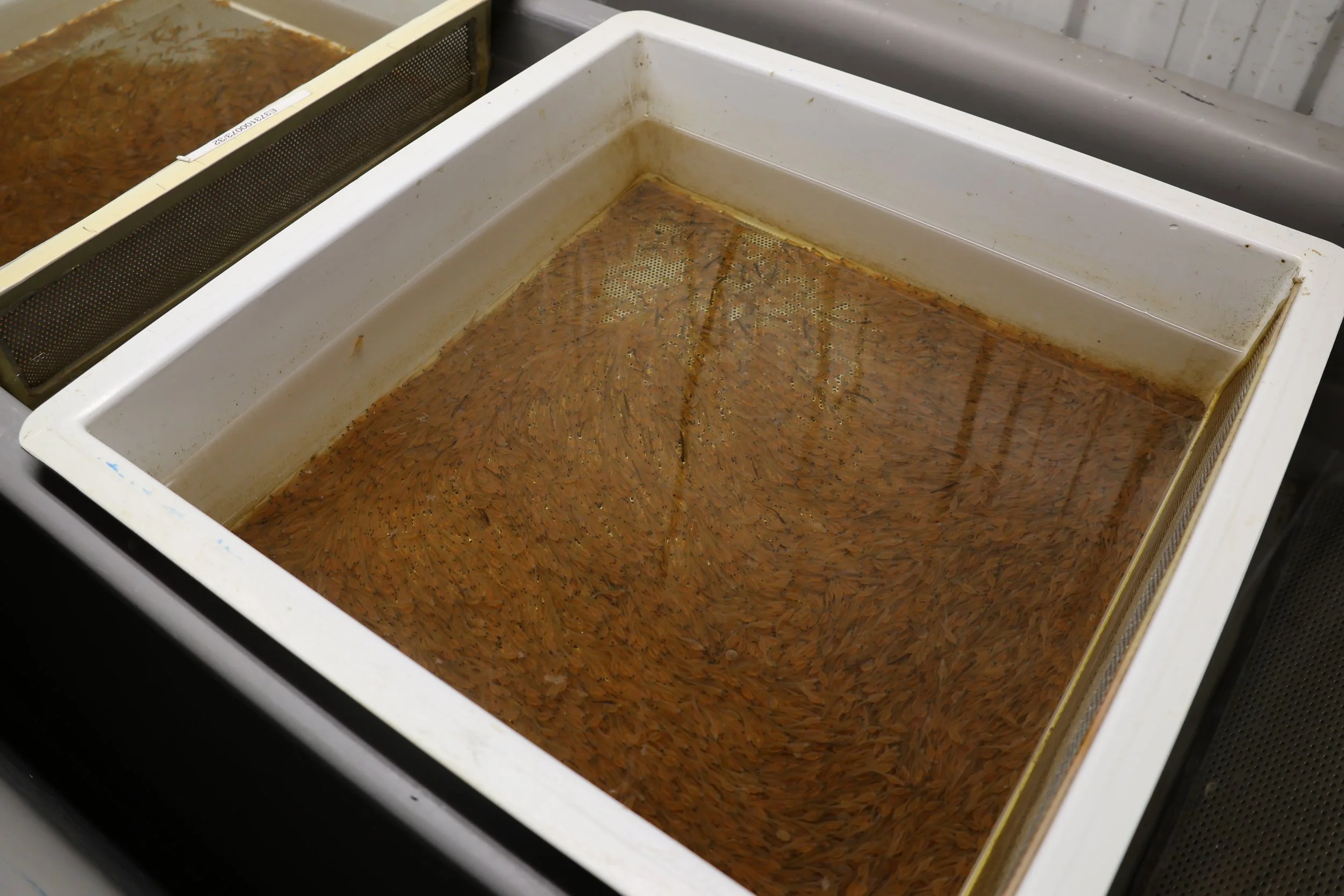Fish falling from the sky
My family has a tradition of visiting the central experimental farm and agriculture museum in Ottawa since our children were little. We had a break for a few years due to the COVID pandemic, but this year we rekindled the tradition. The animals at the farm were in fine form, as always. The staff were kind, and helpful as always.
I find there’s something that speaks to my soul about the farm. I am not sure whether it reminds me of visiting my grandparents’ farms as a child. I am the first generation of both sides of my family to grow up fully off the farm so perhaps there’s a lot of nostalgia for me. Or maybe it is the unexpected juxtaposition of a farm operating in the middle of a large city. In any case, we find it interesting, mindful, and a pleasant field trip.
This year, we visited a new exhibit at the farm covering Aquaculture. It was very well done, covering fish farming, kelp farming, mollusk farming, and a fascinating combination of all three in the same space. The exhibit discussed both open systems in the ocean, and closed systems inland. This exhibit resonated with my whole family, and we took the time to carefully absorb the details. We were so grateful for the opportunity to learn. I highly recommend going if you get the chance!
As a perfect complement to the Aquaculture exhibit, I arranged to visit the White Lake Fish Culture station with my youngest child. It was a beautiful drive from Ottawa, where we live. When we arrived, Angela, a member of the staff, met us and showed us around and shared a bit of her wealth of knowledge.
We started our tour at a bank of large tanks, each containing a large number of salmonid fish. There were tanks of lake trout, brook (aka. speckled) trout, and splake which are a hybrid of lake and brook trout. Sometimes they have walleye (sometimes called pickerel, even though they aren’t true pickerel!), but they didn’t have them during our visit.
We learned about what the fish are fed, water conditions, water treatment, and most interesting to us was to learn about how they are distributed to lakes. The facility has large trucks with tanks. And in some cases, the fish are dropped from the air to restock lakes! It is amazing to imagine fish falling from the sky. I recall learning about this in the past, being very surprised, and that the physics of fish falling surprisingly means they do fine.
We learned about how the fish are bred, and we saw different stages of the fish's development, from eggs, to new hatchlings, and fish at various stages of maturity in different tanks. Each species grows at different rates, but generally they are at the facility for about a year and a half before they are released.
We really appreciated the staff of the station letting us visit, and showing us around. Thank you!
Related, I have my fishing licence, and have been carefully learning how to fish, and do so ethically over the past years. Shout out of gratitude to Jon and his Lost Lakes YouTube channel and Kevin Callan, the Happy Camper, for being so generous with their knowledge. I learned so much from both of them!
In time, I’ll write about my thoughts about farming, fish farming, and so forth. I feel that farming based in science, ethics, and tradition can play an important role in the ecosystem, AND it has to be done right. This topic is nuanced so I’ll approach it carefully in future posts.





